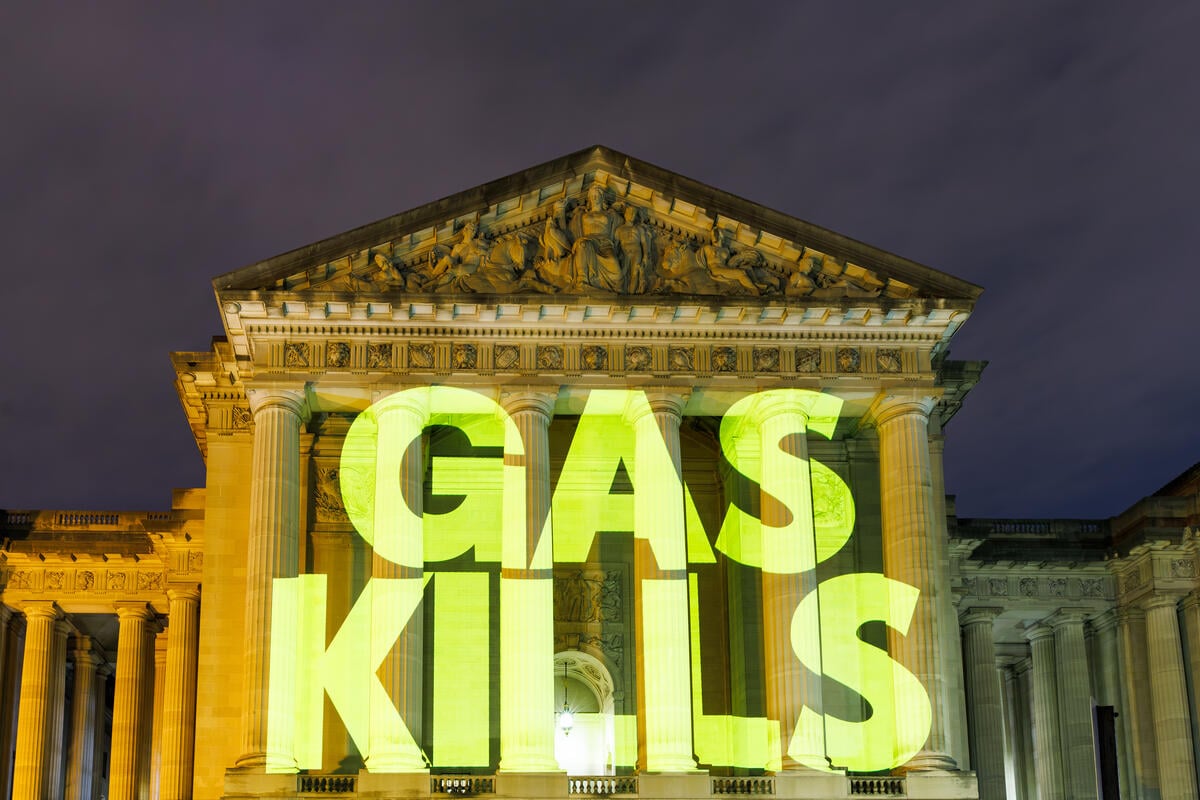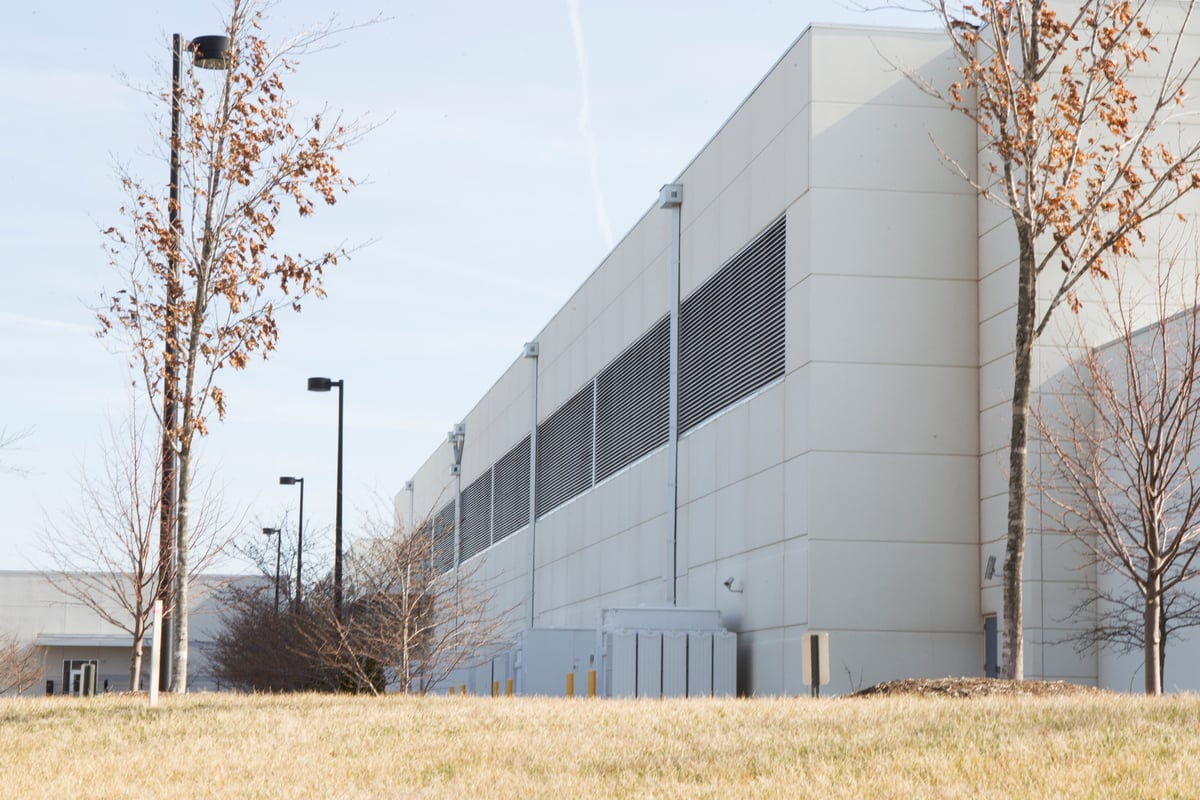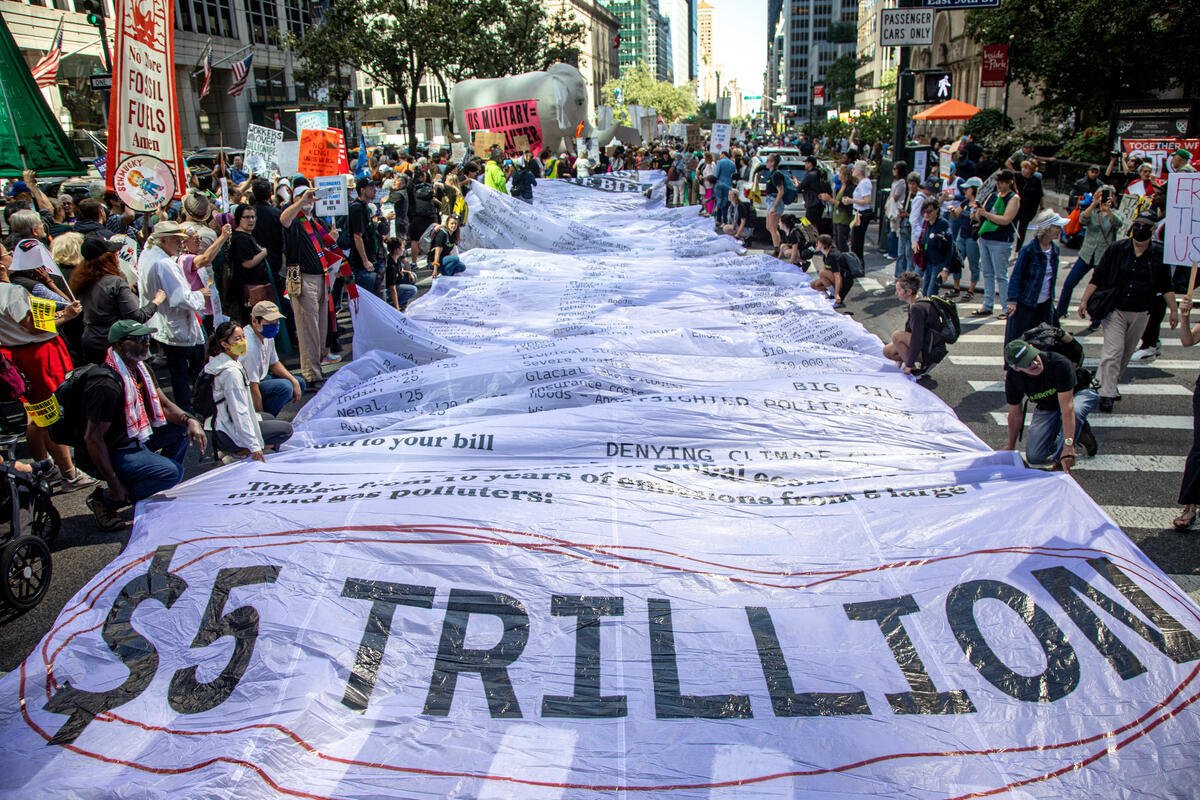For Immediate Release
July 9, 2025
Contacts: Katie Nelson, Greenpeace USA, [email protected], +1 (678) 644-1681, (GMT -8)
Rebecca Stoner, Oil Change International, [email protected], +1 (917) 561-2607, (GMT -4)
As the Trump administration barrels forward with its pro-fossil fuel agenda, and European and Asian governments and financial institutions debate whether to increase investments in U.S. liquified natural gas (LNG) projects, a report published today by Greenpeace USA, Earthworks, and Oil Change International highlights the climate threats and financial risks posed by five major new liquefied gas export projects proposed for the United States Gulf Coast, all but one of them still awaiting a final investment decision.
“What we found was crystal clear – any further investment in LNG is not compatible with a livable climate,” says Andres Chang, Senior Research Specialist at Greenpeace USA and lead author of the report. “The massive growth in infrastructure along the Texas and Louisiana Gulf Coast has already created significant public health and ecosystem impacts, threatening entire coastal communities. But it doesn’t stop there. We believe this report shows that if built, these projects would put global climate goals even further out of reach.”
The report analyzes five major U.S. LNG projects – Venture Global CP2, Cameron LNG Phase II, Sabine Pass Stage V, Cheniere Corpus Christi LNG Midscale 8-9 [1], and Freeport LNG Expansion – and finds that each and every one fails a “climate test” derived from models in the Department of Energy’s (DOE) 2024 LNG Export public interest studies. Contrary to industry claims, the report shows that decreasing methane venting and leaking during gas drilling, transportation, and liquefaction is not enough to make these projects “climate neutral.”
“Focusing the Department of Energy’s model on individual US LNG terminals that are yet to be built, we found that they all result in increased greenhouse gas emissions because they pollute the climate, displace renewable energy, and drive up gas demand,” says Lorne Stockman, Oil Change International Research Director and report co-author. “It is very clear that governments, investors, and insurers must stop supporting the reckless LNG buildout now and instead invest in a rapid and just transition to renewable energy that will protect our communities from toxic pollution and climate-fueled superstorms.”
Future administrations could revoke export authorizations that were rubber-stamped under Trump based on their failure to pass the DOE “climate test,” which introduces a new layer of uncertainty to these already-risky projects. This report adds to a rapidly growing body of evidence that financing U.S. LNG is not a sound decision for insurers, investors, or purchasers – something the EU and America’s Asian allies must keep in mind as President Trump pressures them to increase their imports of U.S. LNG under threat of sweeping tariffs. “Countries with climate commitments, such as those in the EU, should be very wary of the climate cost of importing US LNG,” says Dr. Dakota Raynes, Senior Manager of Research, Policy, and Data at Earthworks and report co-author.
“Fossil fuel dependency has long externalized its true costs, forcing communities to bear the burden of pollution, sickness, and economic instability,” says James Hiatt, founder and director of For a Better Bayou. “For decades the oil and gas industry has known about the devastating health and climate impacts of its operations, yet it continues to expand, backed by billions in private and public financing. These harms are not isolated – they’re systemic, and they threaten all of us. This report is a call to conscience. It’s time we stop propping up deadly false solutions and start investing in a transition to energy systems that sustain life, not sacrifice it.”
Notes:
Read the full report here.
A recording of yesterday’s press briefing with authors, community members, and other subject experts can be found here.
[1] As of the drafting of the report, all five were awaiting a final investment decision. On June 24, 2025, Cheniere Corpus Christi LNG announced a positive final investment decision.
Greenpeace USA is part of a global network of independent campaigning organizations that use peaceful protest and creative communication to expose global environmental problems and promote solutions that are essential to a green and peaceful future. Greenpeace USA is committed to transforming the country’s unjust social, environmental, and economic systems from the ground up to address the climate crisis, advance racial justice, and build an economy that puts people first. Learn more at www.greenpeace.org/usa.
Oil Change International campaigns to expose the true costs of fossil fuels and facilitate the ongoing transition towards clean energy. Oil Change International is dedicated to identifying and overcoming barriers to that transition.
Earthworks protects communities and the environment from the adverse impacts of mineral and energy development while promoting sustainable solutions.



